Excited and drained from running all around the country of Thailand, we reached the island of Koh Tao. The scenic view of the little patch of marooned land was nothing short of a screen saver or the wallpaper you see in your depressing cubicle. Strapped up with backpacks, Mithila, Rakib, Adity, Zulfikar, and I stepped off the boat, intrigued to discover what this island offers.
Before your mind wanders off to "party places, pubs, and parties again," there comes a time when such things will start to feel trivial and empty. Sure, one can indulge in the social activities mentioned above to explore oneself, but sadly, they get old after a particular time.
Back to the story, being millennials and avid fans of the movie Zindagi Na Milegi Dobara, we decided to explore the world underwater. "I mean, why not?" I said to the group, "Why not be a part of something that we'll never forget?"
Zulfikar, possessing the exceptional swimming skills of a brick, had something else entirely to say. But despite his best efforts, peer pressure got the best of him.
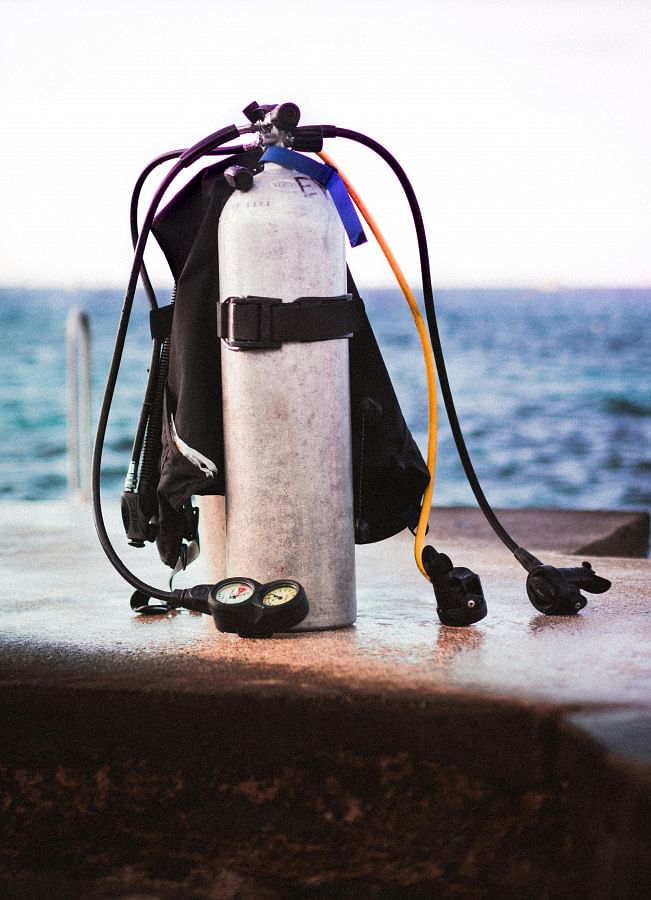
Looking for diving schools from the dock to our hotel, we found at least a dozen of them with diving gear hung out to dry in front of their establishment. With a limited amount of time and an even smaller amount of patience, we signed up for a diving experience at the Crystal Dive diving school.
How did we know the school was worth it? The German lady at the reception smiled at us.
After completing all the formalities and paperwork, we were given a few topics to study and learn the basic dos and don'ts of diving. Early the following day, the group and I dragged ourselves to the school for the practical training.
For those who are thinking that knowing how to swim is necessary for diving, it's not. It's good to know, but it is not mandatory!
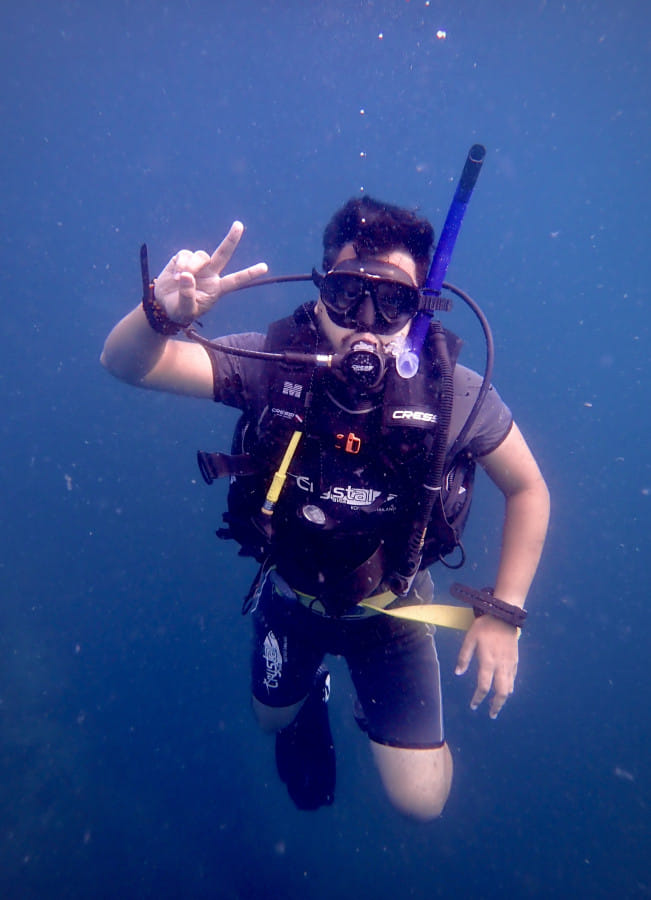
We were taught how to communicate and fix our equipment underwater on a fundamental level for nearly two hours. Then, we were taken to the deep sea to experience what we had been waiting for.
The 15-minute boat ride to the deep sea can be described as follows: jade blue waters flowing endlessly into the horizons, with tiny islands in the mix as you glide through the subtle waves with salty wind blowing through your hair, or you can describe it as therapeutic.
Upon reaching the dive spot, we all geared up, carrying fifteen kilogrammes of equipment. Then came the moment we had all been waiting for; breathing through my regulator, I jumped into the water.
We all felt overwhelmed, ecstatic, a bit scared, and somewhat fulfilled. Submerging ourselves on the seabed, we started to explore the world that was unknown to us before the jump. The moment I went beneath the water, all I could hear were my own breaths forming into silver bubbles floating through the life that existed there.
Colours exuded by corals, uncountable species of fish, and plankton can easily mesmerise most caviler art critics in the business. During such instances, one can't help but wonder, "All that I see around myself cannot just exist by chance; if anything, it was a divine intervention by a higher power."
Time seemed to slow down under the waves. Each moment can feel elongated, making you more aware of the here and now. This shift in my perception of time helped me appreciate the more minor details of life, both underwater and above.
Speaking of which, muted from the obnoxious sounds of the upper world, my primary sound source was my breathing, which led me into introspection. This silence allowed me to connect more deeply with my thoughts.
Unbeknownst to me, I mastered the art of controlled breathing by observing life forms that thrive in the deep sea, adapting to high pressure and low light, and showcasing the delicate balance of marine ecosystems.
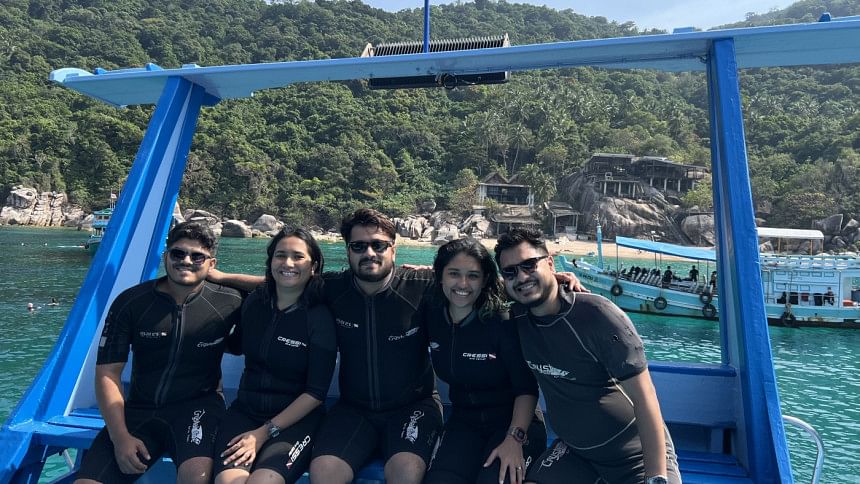
In this place, humans are just visitors. As my entire body was pulsating from the new experience, the tank on my back was almost running empty. With a heavy heart, we began to ascend towards the boat, and as I emerged above the water, I felt light.
I had shed the excess weight of being conscious of my surroundings, my hyperawareness, and the weight of my notifications. The most vital lesson I took home from scuba diving was taking a step back, slowing down, and controlled breathing, not just for survival but as a tool for calm and focus — a lesson applicable in daily life.




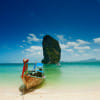
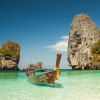
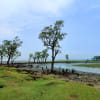
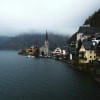
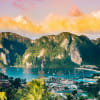
Comments